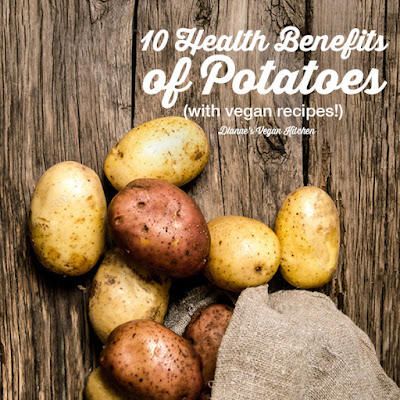Potatoes are edible tubers, available worldwide and every one year long. They are relatively cheap to grow, rich in nutrients, and that they can make a delicious treat.
The humble potato has fallen in popularity in recent years, thanks to the interest in low-carb foods.
However, the fiber, vitamins, minerals, and phytochemicals it provides can help keep off disease and benefit human health.
Potatoes were first domesticated within the Andes in South America up to 10,000 years ago. Spanish explorers introduced them to Europe in the early 16th century.
They are now the most important vegetable crop within the us (U.S.), where the typical person eats 55 pounds, or 35 kilograms (kg) of potatoes per annum . They are a crucial staple food in many countries round the world.
This MNT Knowledge Center feature is a component of a set of articles on the health benefits of popular foods.
Fast facts on potatoes:
Here are some key points about potatoes. More detail is in the main article.
Some evidence suggests that potatoes might help reduce inflammation and constipation
A medium potato contains around 164 calories and 30 percent of the recommended daily B6 intake.
A potato on a winter’s day makes a cheap , warming, and nutritious treat.
Benefits
Potatoes are often healthful if prepared within the right way.
A high intake of fruits and vegetables can benefit health and reduce the danger of the many lifestyle-related health conditions.
Potatoes contain important nutrients, even when cooked, which will benefit human health in various ways.
Here we glance at 10 ways during which the potato might contribute to a healthful lifestyle, including preventing osteoporosis, maintaining heart health, and reducing the danger of infection.
1) Bone health
The iron, phosphorous, calcium, magnesium, and zinc in potatoes all help the body to create and maintain bone structure and strength.
Iron and zinc play crucial roles within the production and maturation of collagen.
Phosphorus and calcium are both important in bone structure, but it's essential to balance the 2 minerals for correct bone mineralization. Too much phosphorus and insufficient calcium end in bone loss and contribute to osteoporosis.
2) Blood pressure
A low sodium intake is important for maintaining a healthy vital sign , but increasing potassium intake could also be even as important. Potassium encourages vasodilation, or the widening of the blood vessels.
According to the National Health and Nutrition Examination Survey (NHANES), fewer than 2 percent of yank adults meet the daily 4,700-milligram recommendation.
Potassium, calcium, and magnesium are all present within the potato. These are found to decrease vital sign naturally.
3) Heart health
The potato’s fiber, potassium, vitamin C, and vitamin B6 content, including its lack of cholesterol, all support heart health.
Potatoes contain significant amounts of fiber. Fiber helps lower the total amount of cholesterol in the blood, thereby decreasing the risk of heart disease.
Research based on the NHANES has linked a higher intake of potassium and a lower intake of sodium to a reduced risk of all-cause mortality and heart disease.
4) Inflammation
Choline is a crucial and versatile nutrient that's present in potatoes. It helps with muscle movement, mood, learning, and memory.
It also assists in:
maintaining the structure of cellular membranes
transmitting nerve impulses
the absorption of fat
early brain development
One large potato contains 57 mg of choline. Adult males need 550 mg, and females 425 mg each day .
5) Cancer
Potatoes contain folate. Folate plays a task in DNA synthesis and repair, then it prevents many sorts of cancer cells from forming thanks to mutations within the DNA.
Fiber intake from fruits and vegetables like potatoes are related to a lowered risk of colorectal cancer.
Vitamin C and quercetin also function as antioxidants, protecting cells against damage from free radicals.
6) Digestion and regularity
The fiber content in potatoes helps prevent constipation and promote regularity for a healthy alimentary canal .
7) Weight management and satiety
Dietary fibers are commonly recognized as important factors in weight management and weight loss.
They act as “bulking agents” within the gastrointestinal system . They increase satiety and reduce appetite, so an individual feels fuller for extended and is a smaller amount likely to consume more calories.
8) Metabolism
Potatoes are a great source of vitamin B6. This plays a vital role in energy metabolism, by breaking down carbohydrates and proteins into glucose and amino acids. These smaller compounds are more easily utilized for energy within the body.
9) Skin
Collagen is the skin’s support system. Vitamin C works as an antioxidant to assist prevent damage caused by the sun, pollution, and smoke. Vitamin C also helps collagen smooth wrinkles and improve overall skin texture.
10) Immunity
Research has found that vitamin C may help reduce the severity and duration of a chilly . Potatoes are a good source of vitamin C.


إرسال تعليق